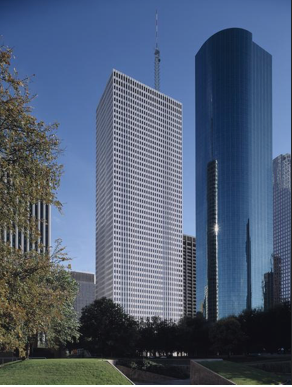
Metro NEXT Plan Earns Houston Realty Business Coalition Stamp Of Approval Houston Other October 15, 2019, Kyle Hagerty, Bisnow Houston Want to get a jump-start on upcoming deals? Meet the major Houston players at one of our upcoming events! At the ballot this November, Houston Metro will ask voters for a $3.5B bond, more than ever before, in hopes of funding 75 miles of rapid bus service and 16 miles of light rail while putting $600M into the local bus system. The plan, not without its critics, could be a game-changer for Houston’s Inner Loop, constrained by traffic and ever-widening highways. The plan was officially endorsed by the Houston Realty Business Coalition, with a two-thirds majority vote from trustees. But with a concerning lack of specifics, Metro NEXT’s vision may be more of a dream. Courtesy of Metro Houston Metro Light-Rail “We are pleased to support this forward-looking bond measure,” Houston Realty Business Coalition Chair Alan Hassenflu said in a statement. President and CEO of Fidelis Realty, Hassenflu is behind several high-profile developments across the Houston area, like the redevelopment of the 1.1M SF San Jacinto Mall and Yale Marketplace, a chic Whole Foods-anchored retail center. “To secure our region’s continued economic prosperity as its population grows to 10 million by 2040, and to keep congestion from crippling our region, we must expand our mobility options in a fiscally prudent manner,” Hassenflu said. “We believe the METRO Proposition does that.” The plan, which can be viewed here, contains dozens of projects aiming to be completed over the course of a 20-year timeline. Metro has said it will apply for matching federal dollars that could raise the investments to $7.5B. The plan lists start and endpoints of routes, but not where the buses or rails will run in between those points. Critics say the lack of transparency about what will be built, when it will be built and where exactly it will be built is setting up voters for a false bill of sale, just like the last Metro bond vote. Courtesy of Metro Houston Metro Buses The last time Houston voters went to the ballot for a Metro bond, a $640M proposal voted on in 2003, things didn’t work out as originally planned. Routes were decided after the vote, changing massive portions of the plan. Critics say the same thing can happen with this bond. “I think the plan is as specific as the process allows,” Metro Chairwoman Carrin Patman said, the Houston Chronicle reported. “No one has to worry they are not going to have a chance to weigh in on a given connection.”



 Metro Houston added nearly 1.3 million residents between ’08 and ’18, a 22.3 percent increase. A little more than half the growth came from migration, a bit less than half from natural increase. Metro Houston created 81,900 jobs, a 2.7 percent increase, in the 12 months ending August ’19, according to the Texas Workforce Commission (TWC). Nonfarm payroll employment was 3,166,900 in August, flat from July, and down from 3,185,200 in June. The drop reflects the temporary loss of jobs associated with education.
Metro Houston added nearly 1.3 million residents between ’08 and ’18, a 22.3 percent increase. A little more than half the growth came from migration, a bit less than half from natural increase. Metro Houston created 81,900 jobs, a 2.7 percent increase, in the 12 months ending August ’19, according to the Texas Workforce Commission (TWC). Nonfarm payroll employment was 3,166,900 in August, flat from July, and down from 3,185,200 in June. The drop reflects the temporary loss of jobs associated with education.